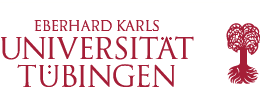Visual information processing in perception and action
Winter term 2020/21 / Fr. 14:15-15:45 (virtual using Zoom)
Guests are welcome!
Note, that the colloq will be held virtual using
video-conferencing software (Zoom). For instructions of how to join
us, please see the following room in Ilias:
https://ovidius.uni-tuebingen.de/ilias3/goto.php?target=crs_2525165.
- Fri 13 November 2020 12:15-13:30
-
-
Volker Franz: Doping in Science: Countermeasures &
Registered Reports in Psychology and the Neurosciences. Universität
Graz, Austria.
Virtual talk via Zoom: livestream; guests and students are welcome; see also: PDF-Flyer
Abstract: Science should be about finding the truth. Unfortunately, incentives are not well aligned with this goal, such that it can be beneficial for scientists to present their results in an upbeat fashion. In extreme cases this has led to outright fraud, but much more troubling are the less extreme cases that can create substantial bias and flawed theories in our scientific literature. In the last decade, scientists have discussed and employed a number of countermeasures, some of them being simple and uncontroversial, others controversial. I will discuss such measures and will argue that it is instructive to compare the overall situation to doping in sports: There are some commonalities but also clear differences that might open up ways for improvements of the situation in science. Finally, I will discuss registered reports as one of the established countermeasures in psychology and the neurosciences and will show when and how this format can be beneficial for the authors, the journals, as well as for the scientific endeavor as a whole.
Note: for organizational reasons you cannot earn credit points for the Forschungskolloquium Kognitionswissenschaft with this talk.
-
Volker Franz: Doping in Science: Countermeasures &
Registered Reports in Psychology and the Neurosciences. Universität
Graz, Austria.
- Fri 20 November 2020 14:15-15:45
-
- Sascha Meyen: Advancing research on unconscious priming: When can scientists claim an indirect task advantage?
- Fri 27 November 2020 14:15-15:45
-
- Sascha Meyen: ITA in Contextual Cueing - First Steps
- NOTE: DIFFERENT DATE: Tue 8 December 2020 16:15-17:45
-
- Lia Schmid (planning talk for BSc thesis): Bayesian Analysis of Processed Information to Test an ITA
- NOTE: DIFFERENT DATE: Tue 15 December 2020 16:15-17:45
-
- Catarina Amado: Can we find an ITA with neuroimaging data?
- Fri 18 December 2020 14:15-15:45
-
- Kriti Bhatia: Extended Journal Club - Is Garner Interference valid evidence for the Perception-Action-Model? (Ganel & Goodale 2003; Hesse & Schenk, 2013; Ganel & Goodale, 2014)
- Fri 15 January 2021 14:15-15:45
- Constanze Hesse, University of Aberdeen: Current work in progress (only internal, no external guests)
- Wed 27 January 2021 10:15-11:45
- Practice talks for TeaP conference (only internal, no external guests)
- Fri 29 January 2021 14:15-15:45
- (no colloq)
- Fri 5 February 2021 14:15-15:45
- (no colloq)
- Fri 12 February 2021 14:15-15:45
- (no colloq)
- Fri 19 February 2021 14:15-15:45
-
- Andreas Strube, UKE Hamburg: The Lateralized Readiness Potential & Predictive Coding.
- Fri 26 February 2021 14:15-15:45
- Lia Schmid (results talk for BSc thesis): Bayesian Analysis of Processed Information to Test an ITA
- Your talk:
-
When preparing a talk for our colloquium, please:
- Practice your talk!
- Print the final version of your talk once on paper (6 slides per page) and bring it to the colloquium.
- Send a PDF-file (and if available a PowerPoint file) of the final version of your talk by email to V. Franz before the talk. Details for the PDF-file: 1 slide per page and make sure that you do NOT create separate pages for each step of the animations.
- Adhere to the time-limits during your talk. Practice that!
- Present data as graphs (supplemented but not supplanted by numerical statistics).
- Provide your name etc. at the title-slide.
- Practice your talk!
- Journal club:
- 10 min presentation (please make sure you adhere to these time-limits!). In the journal club a member of our group present an influential, scientific article relevant to our current work. Articles should typically be recent (e.g., 3-5 years), but could also be older if of special interest. Articles will be available at our file-server (with the path being e.g., EC-STORE/literature/articles/journal-club-WS2020-21), please ask a member of our group if you do not know how to access those. Please make sure that a meaningful reference (containing title, author, year, journal) is presented at this web-page (either by you or by sending an email to V. Franz) and that the full APA-reference in the correct APA-formatting is present on the title-slide of your presentation.

